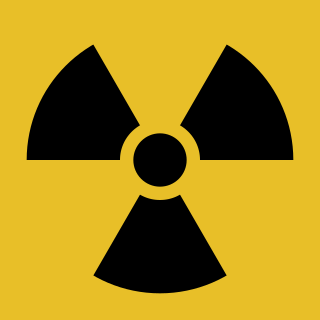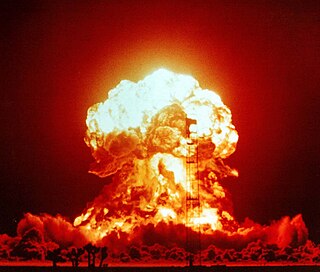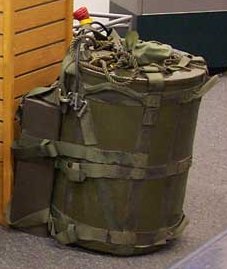 W
WNuclear terrorism refers to any person or persons detonating a nuclear weapon as an act of terrorism. Some definitions of nuclear terrorism include the sabotage of a nuclear facility and/or the detonation of a radiological device, colloquially termed a dirty bomb, but consensus is lacking. In legal terms, nuclear terrorism is an offense committed if a person unlawfully and intentionally "uses in any way radioactive material … with the intent to cause death or serious bodily injury; or with the intent to cause substantial damage to property or to the environment; or with the intent to compel a natural or legal person, an international organization or a State to do or refrain from doing an act", according to the 2005 United Nations International Convention for the Suppression of Acts of Nuclear Terrorism.
 W
WGraham Tillett Allison Jr. is an American political scientist and the Douglas Dillon Professor of Government at the John F. Kennedy School of Government at Harvard University. He is renowned for his contribution in the late 1960s and early 1970s to the bureaucratic analysis of decision making, especially during times of crisis. His book Remaking Foreign Policy: The Organizational Connection, co-written with Peter Szanton, was published in 1976 and had some influence on the foreign policy of the administration of President Jimmy Carter who took office in early 1977. Since the 1970s, Allison has also been a leading analyst of U.S. national security and defense policy, with a special interest in nuclear weapons and terrorism.
 W
WNuclear terrorism refers to any person or persons detonating a nuclear weapon as an act of terrorism. Some definitions of nuclear terrorism include the sabotage of a nuclear facility and/or the detonation of a radiological device, colloquially termed a dirty bomb, but consensus is lacking. In legal terms, nuclear terrorism is an offense committed if a person unlawfully and intentionally "uses in any way radioactive material … with the intent to cause death or serious bodily injury; or with the intent to cause substantial damage to property or to the environment; or with the intent to compel a natural or legal person, an international organization or a State to do or refrain from doing an act", according to the 2005 United Nations International Convention for the Suppression of Acts of Nuclear Terrorism.
 W
WThis is a list of criminal acts intentionally involving radioactive substances. Inclusion in this list does not necessarily imply that anyone involved was guilty of a crime. For accidents or crimes that involved radioactive substances unbeknownst to those involved, see the Nuclear and radiation accidents and incidents.
 W
WThe Four Faces of Nuclear Terrorism is a 2004 book by Charles D. Ferguson and William C. Potter which explores the motivations and capabilities of terrorist organizations to carry out significant attacks using stolen nuclear weapons, to construct and detonate crude nuclear weapons, to release radiation by attacking or sabotaging nuclear facilities, and to build and use radiological weapons or "dirty bombs." The authors argue that these "four faces" of nuclear terrorism are real threats which U.S. policy has failed to take into account. The book is the result of a two-year study by the Monterey Institute's Center for Nonproliferation Studies.
 W
WThis is a list of projected numbers of casualties should a nuclear weapon be detonated in a certain city or other population center.
 W
WThis is a list of nuclear weapons listed according to country of origin, and then by type within the states.
 W
WAlexander Valterovich Litvinenko was a British-naturalised Russian defector and former officer of the Russian Federal Security Service (FSB) who specialised in tackling organized crime. Litvinenko coined the phrase "mafia state".
 W
WAlexander Litvinenko was a former officer of the Russian Federal Security Service (FSB) and KGB. After speaking critically about what he saw as corruption within the Russian government, he fled retribution to the UK, where he remained a vocal critic of the Russian state. Six years after fleeing, he was poisoned by two Russians in a suspected assassination.
 W
WNational Response Scenario Number One is the United States federal government's planned response to a nuclear attack. It is one of the National Response Scenarios developed by the United States Department of Homeland Security, considered the most likely of fifteen emergency scenarios to impact the United States. The Scenarios are related to the National Response Framework (NRF), which describes the structures and mechanisms of a response and the National Incident Management System (NIMS) that gives a framework to orchestrate emergency management.
 W
WNuclear warfare is a military conflict or political strategy which deploys nuclear weaponry. Nuclear weapons are weapons of mass destruction; in contrast to conventional warfare, nuclear warfare can produce destruction in a much shorter time and can have a long-lasting radiological result. A major nuclear exchange would have long-term effects, primarily from the fallout released, and could also lead to a "nuclear winter" that could last for decades, centuries, or even millennia after the initial attack. Some analysts dismiss the nuclear winter hypothesis, and calculate that even with nuclear weapon stockpiles at Cold War highs, although there would be billions of casualties, billions more rural people would nevertheless survive. However, others have argued that secondary effects of a nuclear holocaust, such as nuclear famine and societal collapse, would cause almost every human on Earth to starve to death.
 W
WThis is a list of projected numbers of casualties should a nuclear weapon be detonated in a certain city or other population center.
 W
WThis is a list of criminal acts intentionally involving radioactive substances. Inclusion in this list does not necessarily imply that anyone involved was guilty of a crime. For accidents or crimes that involved radioactive substances unbeknownst to those involved, see the Nuclear and radiation accidents and incidents.
 W
WNuclear terrorism refers to any person or persons detonating a nuclear weapon as an act of terrorism. Some definitions of nuclear terrorism include the sabotage of a nuclear facility and/or the detonation of a radiological device, colloquially termed a dirty bomb, but consensus is lacking. In legal terms, nuclear terrorism is an offense committed if a person unlawfully and intentionally "uses in any way radioactive material … with the intent to cause death or serious bodily injury; or with the intent to cause substantial damage to property or to the environment; or with the intent to compel a natural or legal person, an international organization or a State to do or refrain from doing an act", according to the 2005 United Nations International Convention for the Suppression of Acts of Nuclear Terrorism.
 W
WNuclear Terrorism: The Ultimate Preventable Catastrophe is a 2004 book by Harvard scholar Graham Allison. Allison explains that terrorists have been striving to acquire and then use nuclear weapons against the United States. During the 2004 U.S. Presidential election, President George W. Bush and Senator John Kerry featured the issue of terrorism in their foreign policy platforms, and both said it is the nation's foremost security challenge. Nuclear Terrorism is described as a well-written report for general readers on the terrorist threat and what is needed to reduce it.
 W
WIn his 2007 book On Nuclear Terrorism, author Michael A. Levi surveys the issue of nuclear terrorism and explores the decisions a terrorist leader might take in pursuing a nuclear plot. Levi points out the many obstacles that such a terrorist scheme may encounter, which in turn leads to a host of possible ways that any terrorist plan could be foiled.
 W
WNuclear terrorism refers to any person or persons detonating a nuclear weapon as an act of terrorism. Some definitions of nuclear terrorism include the sabotage of a nuclear facility and/or the detonation of a radiological device, colloquially termed a dirty bomb, but consensus is lacking. In legal terms, nuclear terrorism is an offense committed if a person unlawfully and intentionally "uses in any way radioactive material … with the intent to cause death or serious bodily injury; or with the intent to cause substantial damage to property or to the environment; or with the intent to compel a natural or legal person, an international organization or a State to do or refrain from doing an act", according to the 2005 United Nations International Convention for the Suppression of Acts of Nuclear Terrorism.
 W
WNuclear terrorism refers to any person or persons detonating a nuclear weapon as an act of terrorism. Some definitions of nuclear terrorism include the sabotage of a nuclear facility and/or the detonation of a radiological device, colloquially termed a dirty bomb, but consensus is lacking. In legal terms, nuclear terrorism is an offense committed if a person unlawfully and intentionally "uses in any way radioactive material … with the intent to cause death or serious bodily injury; or with the intent to cause substantial damage to property or to the environment; or with the intent to compel a natural or legal person, an international organization or a State to do or refrain from doing an act", according to the 2005 United Nations International Convention for the Suppression of Acts of Nuclear Terrorism.
 W
WRadiological warfare is any form of warfare involving deliberate radiation poisoning or contamination of an area with radiological sources.
 W
WA suitcase nuclear device is a tactical nuclear weapon that is portable enough that it could use a suitcase as its delivery method.